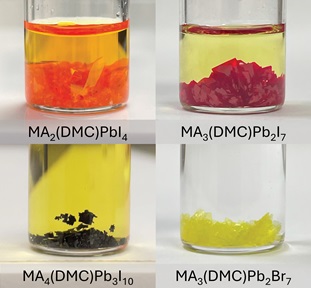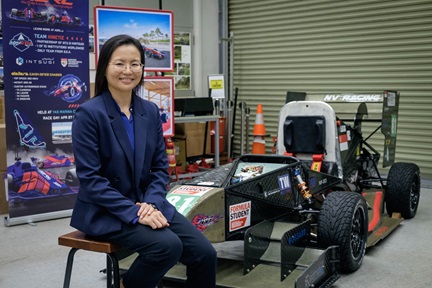Putting research to work: Prof Louis Phee
Prof Louis Phee seeks to bolster innovation and entrepreneurship at NTU.
.jpg?sfvrsn=8830355a_1)
In the decade-plus since co-founding his first spinoff, Prof Louis Phee has grown familiar with the ups and downs that come with starting a business venture. Taking the plunge from research to industry demands considerable time, effort and capital, with its fair share of risks.
The prospect of embarking on entrepreneurship is understandably intimidating for many people in Singapore who can be fairly risk averse.
Nevertheless, compared with the early stages of his own entrepreneurial journey, Prof Phee – who is currently Vice-President (Innovation and Entrepreneurship) at NTU – has witnessed a shift in the next generation of innovators.
“Young people are willing to take more risks now. They understand that being young has its advantages and are willing to take their chances,” says the entrepreneur, who co-founded the medical devices companies EndoMaster and EndoPil in 2011 and 2019, respectively.
“And I want to create an ecosystem where people can take more risks, help one another and, as OneNTU, push up more startups,” adds Prof Phee, referring to the OneNTU collective spirit embraced by the University’s community.
This vision underpins an initiative he is driving to bolster innovation and entrepreneurship at NTU. One idea is the development of new academic credentials in innovation to lower the barriers to entrepreneurship. In the proposed education programme, students will engage with relevant academic coursework. But instead of just submitting a thesis, they will also establish a business on the back of an innovation.
“You would be pursuing a programme that involves starting up a company at the same time,” says Prof Phee. “Even if your company fails, you’d still have learnt from your startup experience and have academic credentials too.”
The details of the programme are under development, with NTU seeking funding, potentially earmarked for scholarships.
Should the programme come to fruition, it could contribute to the University's ambition of doubling the number of deep-tech firms from 15 annually now to 30 by 2026. Such companies spin out from NTU's research on significant scientific advances or engineering innovations.
“The hope is that if you have more good startups that can be invested in, there’s a higher chance of having another ‘unicorn’ in the long run,” says Prof Phee. He is alluding to NTU’s first unicorn, Nanofilm Technologies International, a deep-tech spinoff incorporated in 1999 and publicly listed in Singapore in 2020. Unicorns are private startups valued at over US$1 billion (S$1.34 billion).
To encourage and nudge students to think out of the box and be more entrepreneurial, NTU has instituted courses and programmes. For example, all new undergraduates are introduced to concepts of entrepreneurship in the Interdisciplinary Collaborative Core curriculum. Successful entrepreneurs are also invited by the University to mentor and share insights with students.
Prof Phee has a particular interest in cultivating doctoral students and postdoctoral graduates. “Given enough resources and training, they can take NTU’s research outcomes, including the research-based intellectual property they create, and translate them,” he explains.
He also emphasises the lesson that successful ventures often require collaborative efforts, rather than solitary endeavours. This is one of the most important things Prof Phee learnt from bringing research to market.
“Many company founders think they know everything. The truth is, as one person, you know very little,” he says. “For a company to succeed, you need people from very different disciplines to come together.”
For instance, as an engineer from NTU’s School of Mechanical and Aerospace Engineering, Prof Phee has the know-how to develop the technology behind his companies’ surgical robot and weight-management device. But marketing them is another matter and requires people from other fields with the relevant experience on board, he explains.
This interdisciplinary tenet is reflected in activities under his innovation and entrepreneurship effort. It includes hackathons and competitions at NTU, where students from varied academic backgrounds – such as business, engineering and medicine – are encouraged to team up and complement one another to tackle challenges.
To further promote collaboration between students and even companies, and provide room for them to tinker and experiment, Prof Phee wants to create more dedicated, easily recognisable spaces to cultivate startups on campus. This would be NTU’s own take on the United States’ renowned Kendall Square innovation hub that is closely linked to the Massachusetts Institute of Technology.
“Such spaces are important because they can draw like-minded people to come together to generate more ideas,” says Prof Phee.
At the same time, he acknowledges that entrepreneurship cannot be forced and overly curated: “A lot of it is serendipity. And we should give people room for this to happen.”
Beyond becoming vibrant places for startups to congregate, Prof Phee aspires for these university spaces to also celebrate and elevate successful NTU-originated companies and their founders as beacons of inspiration for others to follow.
“These founders are heroes who dare to dream and start their own homegrown companies,” he says. “These companies are the future of Singapore’s economy and we need more like them.”
The article appeared first in NTU's research and innovation magazine Pushing Frontiers (issue #23, March 2024).




.tmb-listing.jpg?Culture=en&sfvrsn=29c7e020_1)
.tmb-listing.jpg?Culture=en&sfvrsn=55153609_1)

